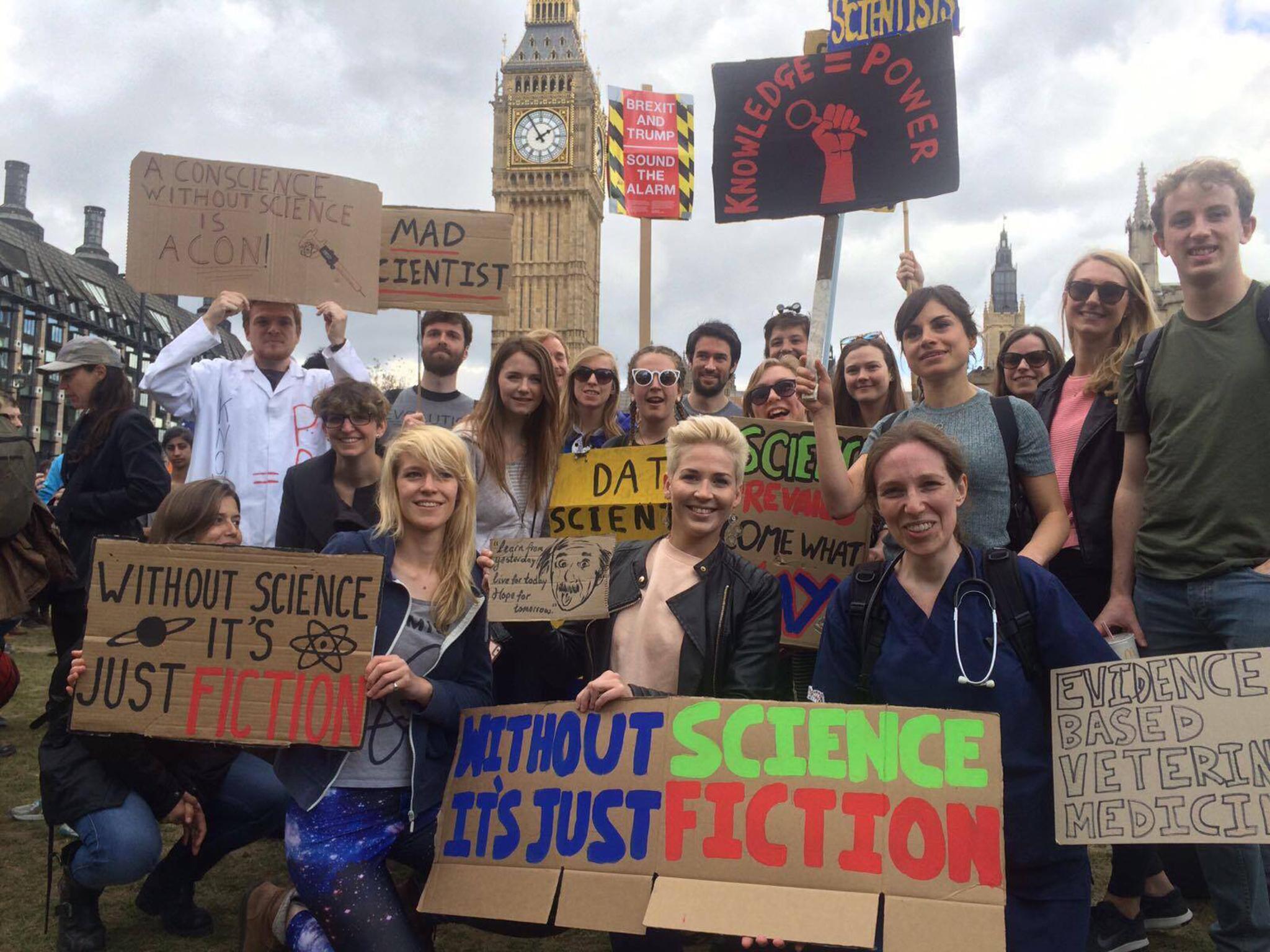March for Science: Thousands turns out for London protest as part of global movement
Protesters oppose Donald Trump’s rejection of science and the rise of misinformation

Your support helps us to tell the story
From reproductive rights to climate change to Big Tech, The Independent is on the ground when the story is developing. Whether it's investigating the financials of Elon Musk's pro-Trump PAC or producing our latest documentary, 'The A Word', which shines a light on the American women fighting for reproductive rights, we know how important it is to parse out the facts from the messaging.
At such a critical moment in US history, we need reporters on the ground. Your donation allows us to keep sending journalists to speak to both sides of the story.
The Independent is trusted by Americans across the entire political spectrum. And unlike many other quality news outlets, we choose not to lock Americans out of our reporting and analysis with paywalls. We believe quality journalism should be available to everyone, paid for by those who can afford it.
Your support makes all the difference.Thousands of people took to the streets of London for one of hundreds of Marches for Science that have been organised around the world.
Created as a celebration of progress and a call for government policies to protect and encourage research and take into account scientific expertise, marchers wound their way through the capital’s streets before joining a rally in Parliament Square.
Across the globe, similar marches took place in Australia, the US and Europe with big turnouts in Sydney, Brisbane, Edinburgh and a huge crowd expected in Washington DC.
The global protest also corresponded with Earth Day and protesters used the opportunity to call for more ambitious climate action in line with scientific recommendations to limit global temperature rise to 1.5C.
While experts are publishing alarming papers on the impact of climate change, from the melting of the ice-caps and the dying Great Barrier Reef to 2016 being the hottest year on record, the US President has sent chilling messages to scientists.
Since his inauguration, Donald Trump has signed executive orders to slash environmental regulations and pledged to dig out more fossil fuels. It remains uncertain as to whether the US will continue to abide by the Paris Agreement under his presidency.
In London, thousands of protesters walked from the the iconic steps of the Natural History Museum and the Science Museum, passing the Royal Society before ending at Parliament Square.
The marchers also held a minute’s silence to mark the one-month anniversary of the Westminster attack.
The March For Science organiser in London, Story Sylwester, said: “From the foundation of the Royal Society and the Royal Greenwich Observatory in the 17th century, to more modern institutions such as the British Library, the Francis Crick Institute and the Wellcome Trust, London has long been a bedrock of scientific inquiry.
“The London March for Science is an opportunity for scientists and science enthusiasts to come together and defend the scientific integrity, inquiry and curiosity they love.”
Protesters also called on the government to preserve diverse research partnerships in the UK amid fears Brexit will have a significant impact on research funding and collaboration with European institutions.
Marching in London, Jen Nelson, a PhD student in chemistry at the University of Cambridge, told The Independent: “We think it’s important that science continues to be at the forefront of key decisions in policy as well as everyday life, and that expert opinions are still respected.
“My lab is heavily funded by the EU, and in light of the referendum result we want to ensure science funding and international collaboration remain a priority for our government.”
Pandora Batra, a member of the UK Youth Climate Coalition, said: “This is important because science is the reason we are able to live the lives we do and I do not want my future to be determine by un-informed policy decision.”
The Cosmic Shambles Network, which celebrates curiosity and science, will aim to continue to keep the message of the march alive by providing debates and resources.
Kenneth Kimmell, president of the Union of Concerned Scientists, said the fact scientists were ready to leave their labs and take to the streets showed the seriousness of the situation.
Mr Kimmell said there was “an unprecedented attack on science, scientists and evidence-based policymaking is underway in the US federal government”.
“We have learned – the hard way – that we can’t take respect for facts and science for granted and a large and growing “fact-based” community is rising up,” he said.
“As the demonstrations are likely to show, an enormous number of people understand what is stake. The greatest attack on science in memory may wind up spurring the greatest mobilisation of scientists, and allies far and wide, we have ever seen.”
Join our commenting forum
Join thought-provoking conversations, follow other Independent readers and see their replies
Comments